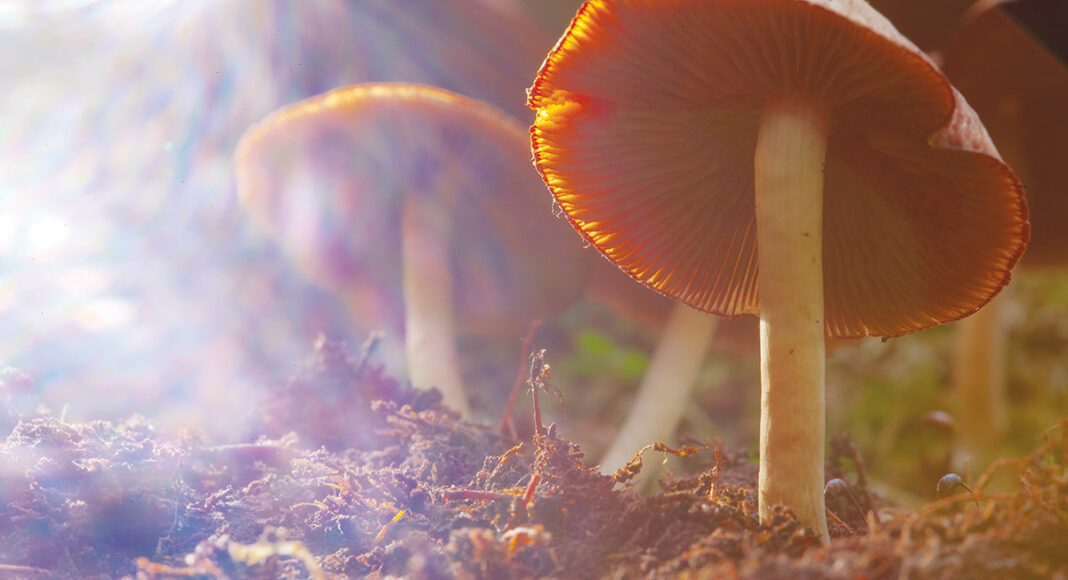When the Santa Cruz City Council voted unanimously in January to decriminalize entheogenic plants and fungi, it came as a pleasant surprise to the group that spearheaded the measure.
“The councilmembers did extensive research and vetting of the information before even allowing this measure to be voted on,” says Athonia Cappelli, one of the founding members of Decriminalize Santa Cruz. “They really did their homework and showed integrity.” She and her group worked with each council member along with the local police and fire chief, paramedics, the public safety commission, and city attorneys.
Decriminalization went into effect overnight after the city council’s vote, Cappelli says, defunding legal action against people ages 21 and older who are consuming, cultivating, or in possession of entheogens.
An entheogen, Cappelli explains, “is any naturally-occurring psychedelic that allows one to attain a state of spiritual consciousness.” The measure primarily refers to psilocybin mushrooms, ayahuasca, DMT, ibogaine, and mescaline.
Santa Cruz is the second jurisdiction in California, following Oakland, and the third in the country to pass such an initiative, putting it at the forefront of a “decriminalize nature” movement focused on psychedelic reform that is currently being considered by many local governments nationwide.
“We’re trying to get more cities to do this now that we have a template,” Cappelli says, adding that her group is hoping to get psilocybin decriminalization on the November ballot statewide in 2020. These kinds of substances should be decriminalized “because they’re not being abused and there is zero evidence of these plants being addictive,” she says.
“It’s an opportunity to chip away at the war on drugs and see that people have the peace of mind to use psychedelics as they see fit to treat their psychological ailments without the fear of police interference,” Cappelli says.
Her group also advocates for and is passionate about the decommodification of these substances.
“We want there to be equitable access to psychedelic plants,” she says. “We want to make sure disenfranchised communities can seek out psychedelic methods for healing so that they’re not left out.”
Helping this movement gain traction is an increasing open-mindedness in the public, as well as a growing body of evidence both anecdotal and clinical that these substances can help treat a variety of psychological problems and mental health issues. Cappelli says that these include addiction, depression, mental anguish, past trauma, stress disorders, and anxiety. Before the Santa Cruz City Council voted, community members came forth to testify and share personal stories about how psychedelics had benefited them and helped treat these conditions.
Cappelli says much of the power and effectiveness of psychedelics centers around their ability to rewire and change the brain. This rewiring can be psychologically therapeutic because it can lead to new ways of thinking and help provide novel perspective. Psychedelics are often thought of as a portal to the subconscious and one’s true inner-self. They are said to allow people to confront, come to terms with, and perhaps even let go of, past trauma and other problematic mental processes and ways of thinking that could be negatively affecting one’s life.
“People realize they don’t need the pharmaceutical industry to help them; they can literally help themselves,” Cappelli says. “It emboldens them, and many return to the experience regularly.”
Cappelli says a major influence on her personal passion for entheogenic advocacy was when she gifted her friend, who was struggling with past trauma, a three-day guided experience in the Santa Cruz mountains that was centered around ayahuasca—a powerful DMT-containing psychedelic brew made from Amazonian plants. Cappelli attended the circle with her friend and about 25 other people.
“Most of them sought psychedelics to address their demons, psychological issues, and mental anguish,” she says. “They were literally doing work.”
Cappelli says she and her friend both benefited from their journey, and she stresses the importance of using shamans and other trained facilitators with professional expertise when using psychedelics. She says that post-use integration circles are vital as well.
“It’s taking the previous trip and integrating it into one’s day-to-day existence, and that’s where people are really helped,” Cappelli says.













